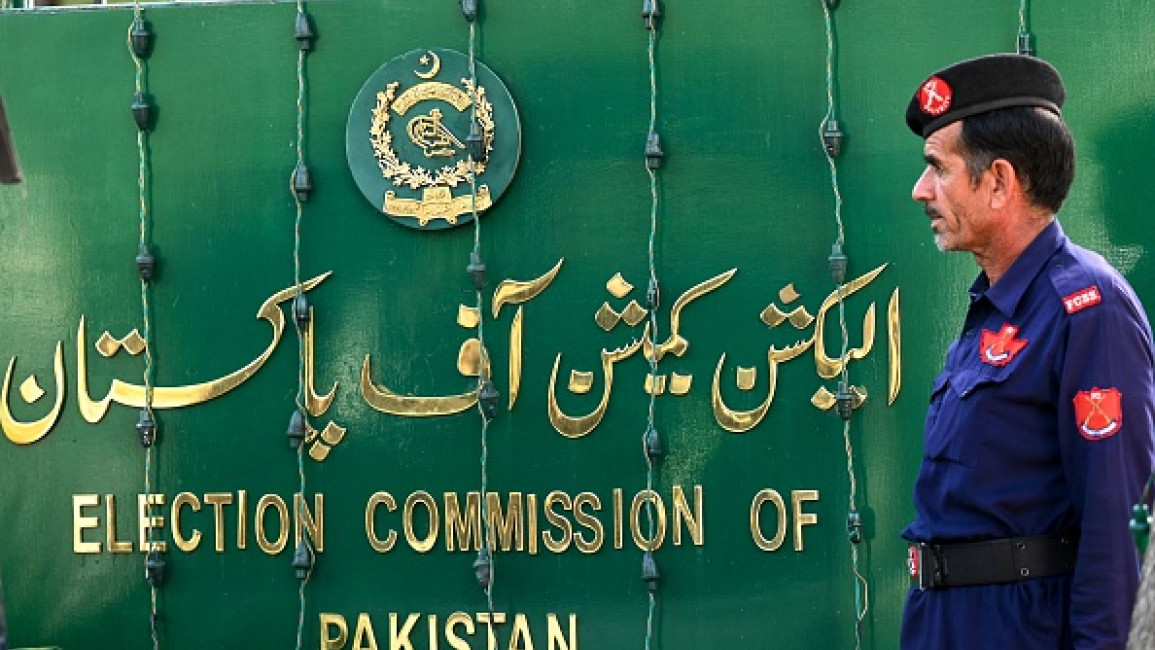Pakistan national elections to be held towards end of January 2024
Pakistan will hold delayed national polls in January next year, the election commission announced Thursday, as the country grapples with overlapping political, economic and security crises.
A caretaker government has been running the South Asian country since parliament was dissolved on August 9, days after former prime minister Imran Khan was imprisoned for graft and barred from contesting elections for five years.
His successor, Shehbaz Sharif, is currently in London consulting with his brother Nawaz Sharif, a three-time former premier who is expected to return to Pakistan next month following four years in exile after being granted medical bail from his own jail sentence.
Polls were supposed to have taken place within 90 days of parliament's dissolution but the Election Commission of Pakistan (ECP) said it needed time to redraw constituency boundaries following the latest census.
The ECP announcement Thursday cheered political analysts and the business community.
"The announcement of a date is a positive and significant sign, however Pakistani politics is so unstable that one can't predict what will happen after three months," political analyst Hasan Askari Rizvi told AFP.
"But all the sufferings of the common people due to inflation and price hikes will have a direct bearing -- provided all parties are allowed to campaign and contest elections," he said.
Pakistan Business Forum official Ahmad Jawad told AFP the announcement came as a relief.
"It's been a demand of the business community to announce the election date to overcome the instability which is eating us like a termite," he told AFP.
"Pakistan's economy needs complete political stability."
Khan's ouster as prime minister in April last year sparked months of political drama, with the former international cricket star staging a defiant campaign against the powerful military culminating in a major crackdown on his Pakistan Tehreek-e-Insaf (PTI) party.
Two normally feuding dynastic parties - the Pakistan Peoples Party (PPP) and Pakistan Muslim League-Nawaz (PML-N) - teamed up to form the next government, but cracks are already showing in their shaky alliance and they are likely to be bitter opponents in the next election.
With much of Khan's PTI leadership in jail, in hiding, or having abandoned the party, it remains unclear how much of a threat they will pose.
Teacher Ijaz Ahmad, 25, said it was vital all parties were allowed to contest the election.
"It is also important to release all political leaders and let everyone be given a chance to participate in the elections," he told AFP in the northwestern city of Peshawar.
"Let the people decide which party they want to see in power next time."
Pakistan is struggling through a biting economic downturn, with business leaders crying out for authorities to bring political stability to a cash-strapped nation that has seen a record devaluation of the rupee and soaring inflation.
It has also witnessed a dramatic spike in militant attacks, mainly in its border regions with Afghanistan since the Taliban returned to power in Kabul in 2021.
Election campaigns in Pakistan are generally feisty affairs, with huge rallies held across the country and frequent clashes between supporters of rival parties.
The election commission said Thursday an official campaign period would last nearly two months.
"The final list of constituencies will be published on November 30. After that, the elections will be held in the last week of January 2024, after a 54-day election program," it said in a statement.
Information Minister Murtaza Solangi told private TV channel Dunya: "We will provide all the resources to the Election Commission and ensure that all registered political parties have equal opportunities."



